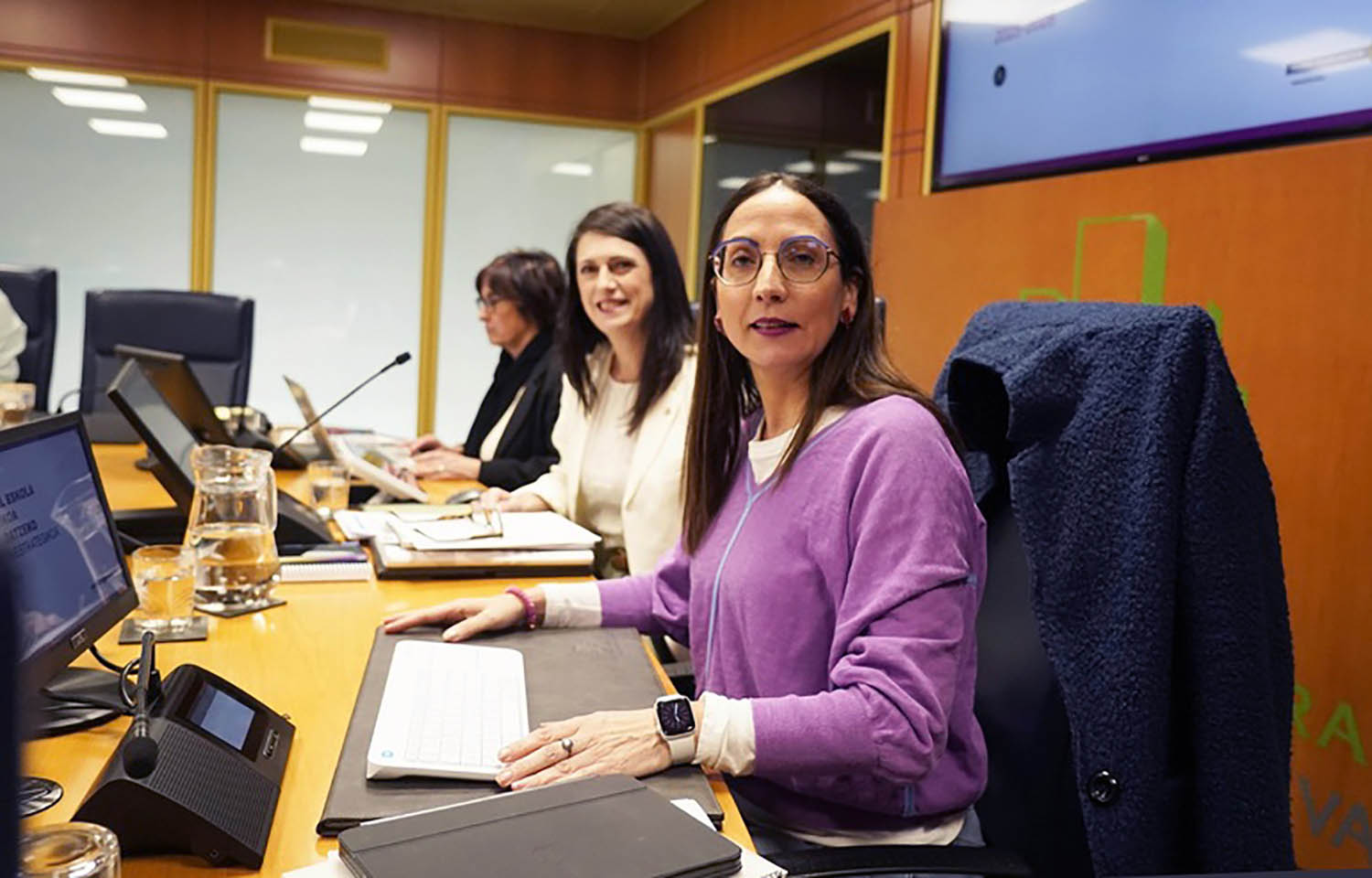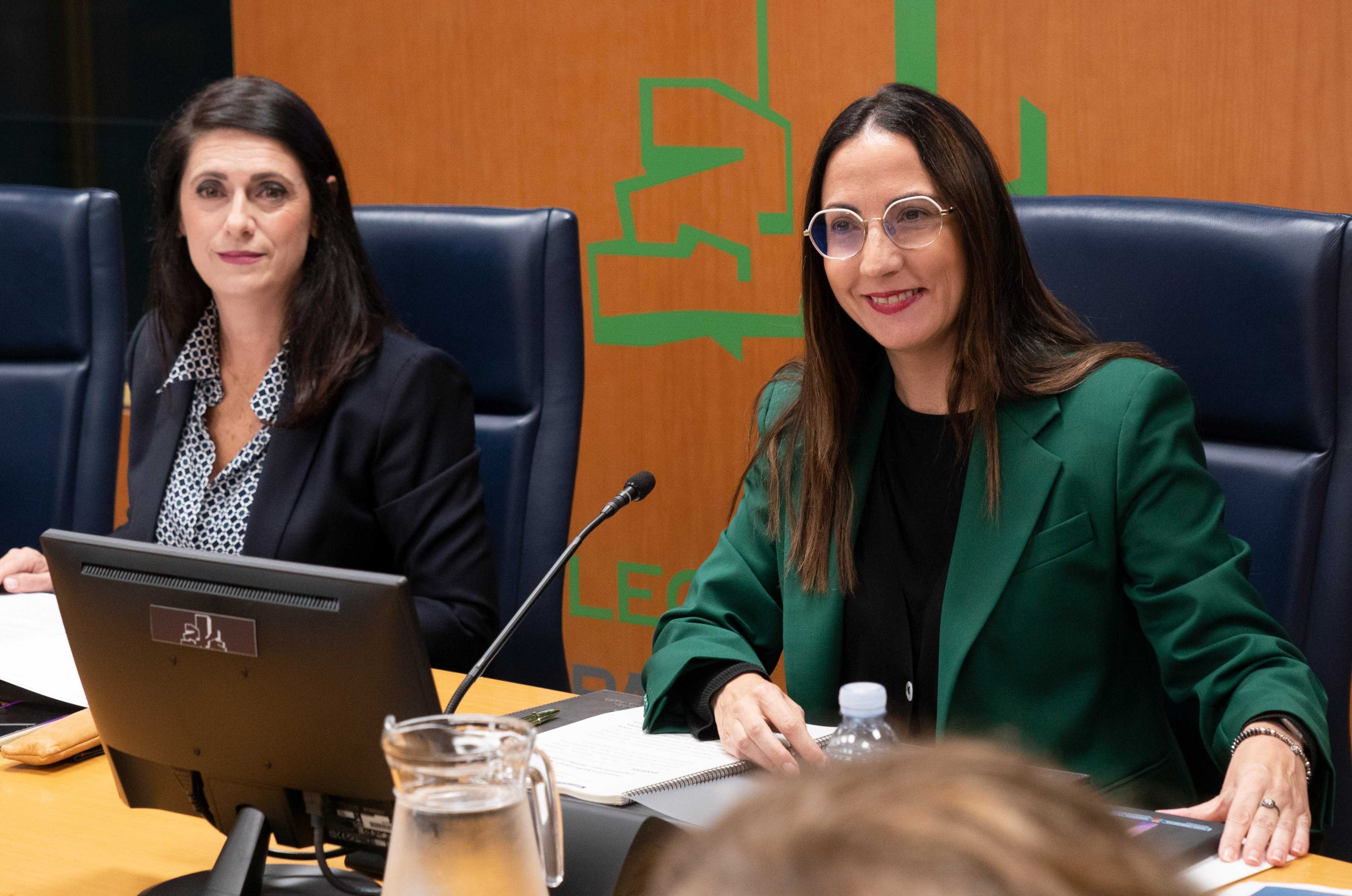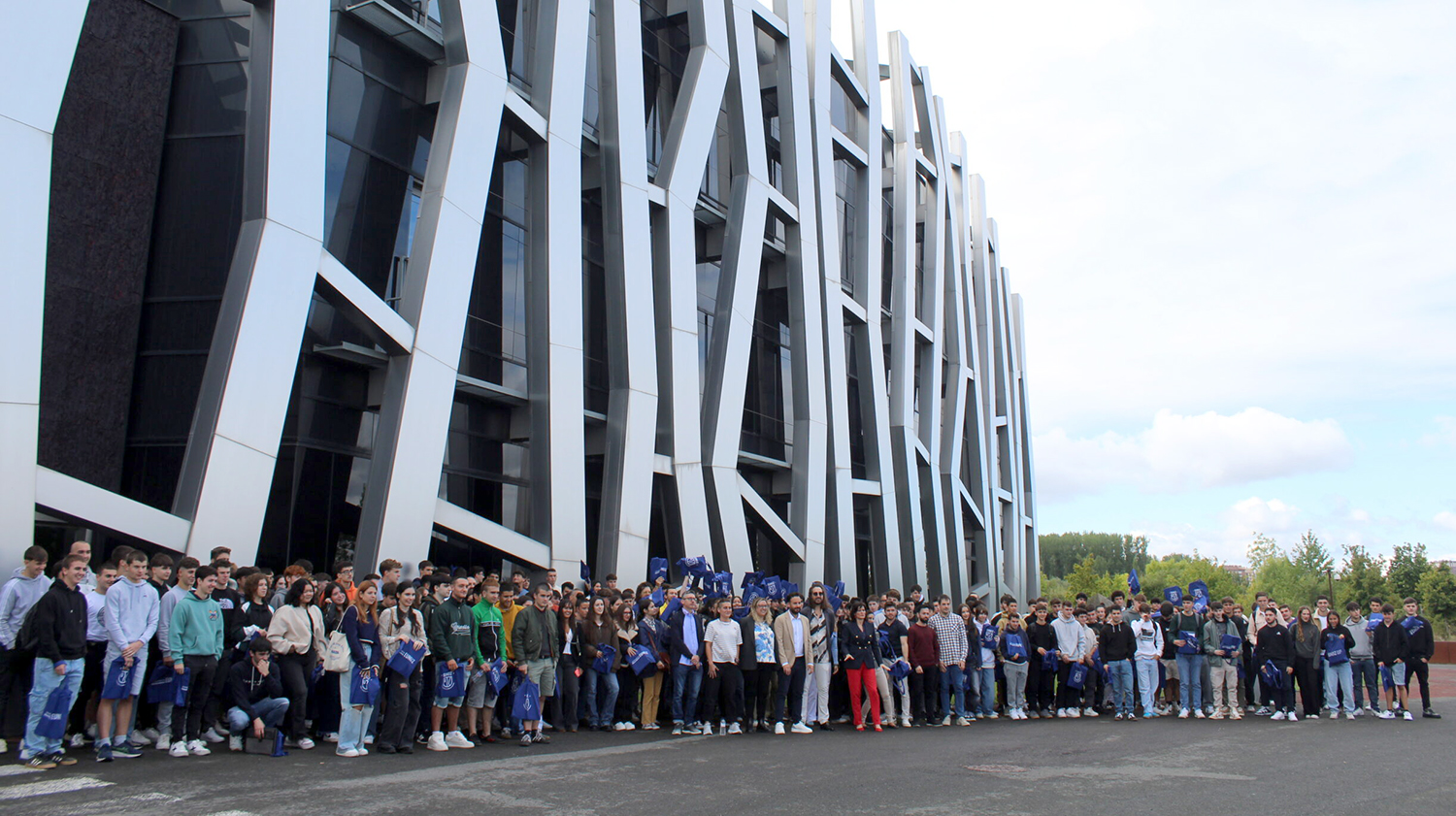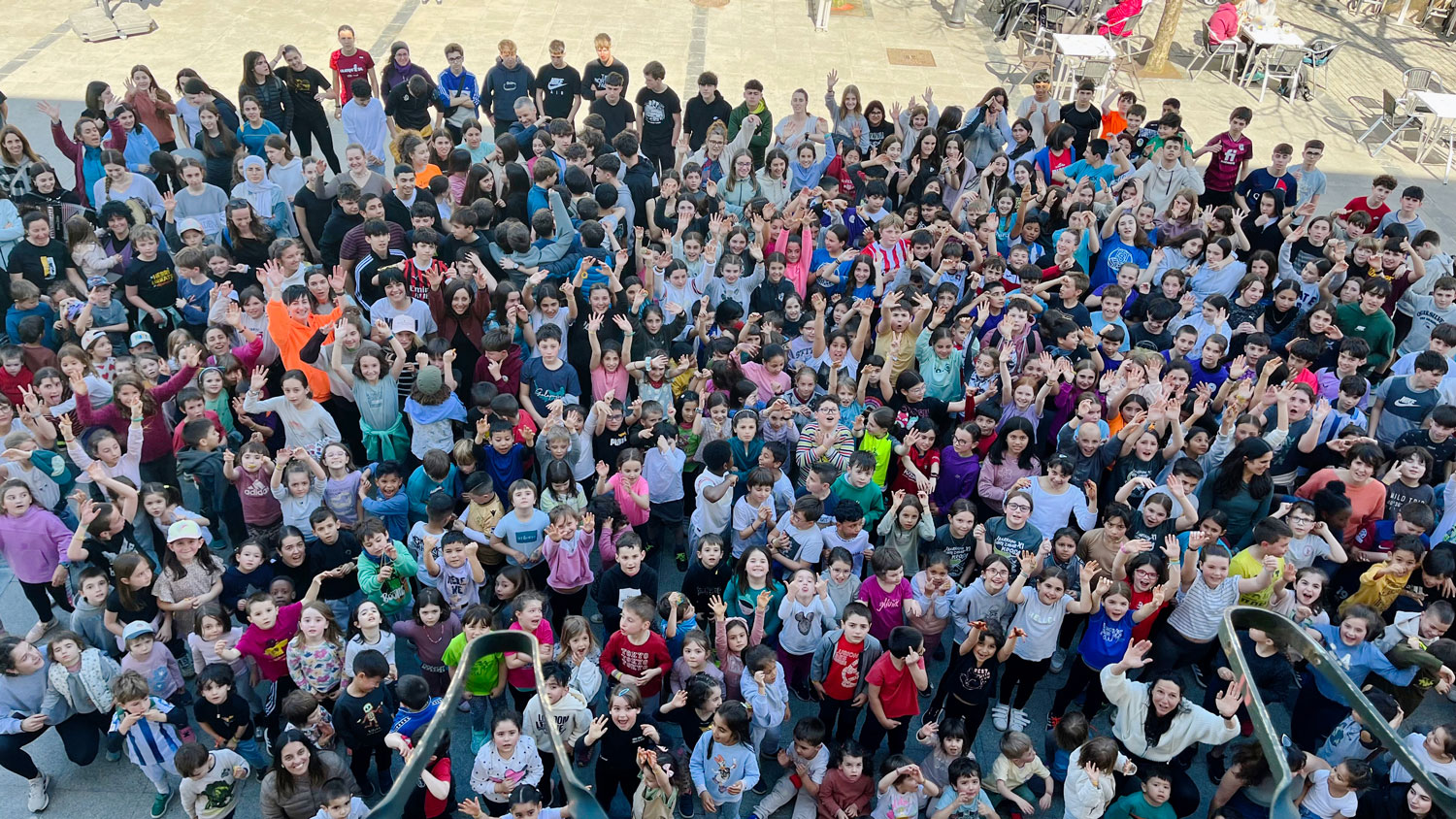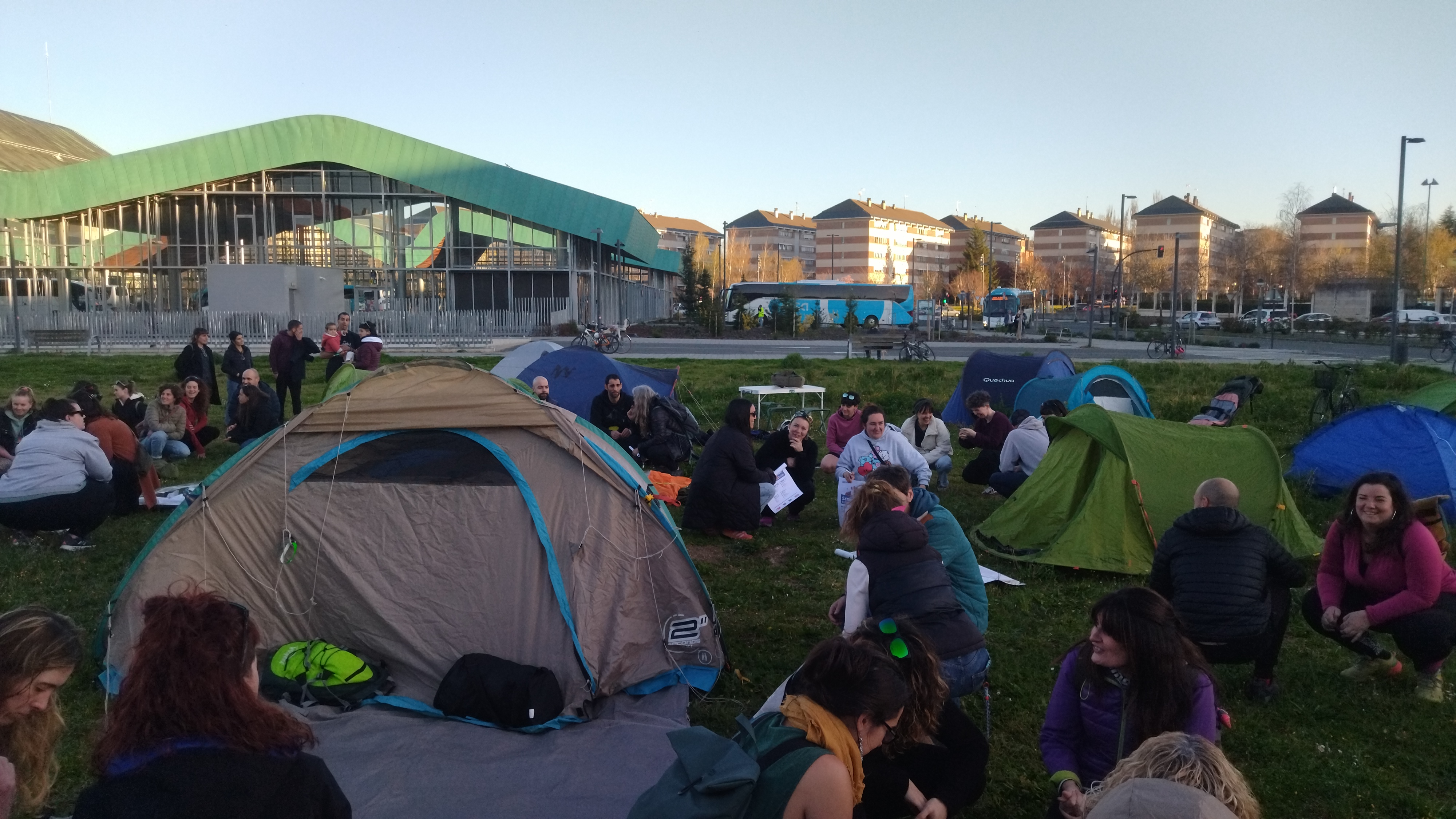"It's important that teachers get out of the closet to make the school a safe space."
- At this time when LGBT has warned of the increase in assaults on people, we wanted to know the presence of the issue at school. We have talked to homosexual professors Kepa Blázquez and Usua Martínez about the homophobic aggressions inside the center, the strategies to face them and the role that educators can play. Blázquez Francés and Martínez teach Language and Literature in High School, and they know that the school is an important space to combat LGBT phobia, but taking into account that “at the same time the school itself is one of the great transmitters of heteronmer that we inhabit from a young age”.

To what extent “pity” is a common insult in schools, among students? What do you want to punish this insult?
Kepa Blázquez: The school is also a reflection of society and, therefore, we should ask ourselves how much is said to be “pale” in the street, in the bar, in the gaztetxe… But it is true that in the school this insult is also used. It doesn't punish sexual practice, it's removing it from the boxes, particularly from the kid's model box. However, when a homophobic attack occurs, it is always insisted that someone has been attacked for being homosexual, but the focus should not be that, but that the aggressor is homophobic: the origin of the aggression is not the homosexuality of the victim, but the homophobia of the aggressor. At the same time, it serves to point out to someone else how pale to ensure their virility, indicating what has left the box to be within it, within the norm.
Usua Martínez: I have not seen, when the students work with each other, a kind of ‘she is a pity’; instead, as an insult often, for example, if a boy has shown some weakness for his virility. I've also had what I didn't expect: when the first day of class were young, 15-year-olds, more than one girl said she was a lesbian or bisexual. And it's no coincidence that all of them were girls, and that they were girls who were very empowered with the rest of the students. I see it much harder for a kid to make such a presentation, because saying that you're gay means lowering many steps of the power of your masculinity.
Blázquez: I believe that thanks to the struggle of feminism to be vollera, it does not take the woman away from the gaze of others. On the contrary, when children present themselves as maritxu, our virility is questioned. Because there are different ways of being a woman, I don't think there's that much diversity to be a man.
Kepa Blázquez: "The key is to release oxygen balls to students who go against the hegemonic model."
Are the teachers involved in listening to this kind of insult?
Blázquez: I'll come back to the first one, is the family involved, the neighborhood ...? Because it seems to be the sole responsibility of education. In schools, they usually occur in informal contexts, not in the classroom, and it's not that easy to work. As violence is cut, it is intervened at the moment, but beyond that I miss a long-term strategy. And that strategy should be for everyone, whatever the sexual orientation, understanding that we all suffer the oppression of the boxes, even if it bleeds us more; to which he has screamed “Stand!” it must be thought that his virility is being hurt. The discourse of most anti-homophobia messages is “let them love as they want”, but the discourse should be directed towards work and the deactivation of homophobia itself, understanding that this oppression also influences oneself, more or less.
Martínez: It intervenes in the moment, yes, but with that we do not go anywhere, because we have all learned a lot the discourse, even the students. They know that calling the pancakes isn't right, and they'll tell you right away that they were joking or making an excuse. I mean, it's not about making that action look wrong, because you know, and yet they repeat over and over again that violence... In line with what Kepa was saying, we need strategies to start by turning centers into safe and comfortable spaces, protecting all sexual identities, because today it's not at all like that. We talk about calling someone pity, but violence towards the non-heterosexual comes from everywhere in school, from the résumé to the comments we teachers make.
Blázquez: In response to the need for strategy, I have always been surprised: as thanks to the struggle of the Basque Country the Irale training (courses for teachers, to strengthen the Basque culture and the Basque culture) has been achieved, I would propose a similar training, based on co-education, to become aware of these issues. In short, doing nothing is transmitting and stabilising the standard, and it is not natural, it has propaganda strategies and sanctions, and there is not enough awareness of it. The girl goes to the crew together with the boy who has the pen to the yard, and there she goes to tell the boy “how well you are in company”.
To what extent do you find it useful for non-heterosexual teachers to explain their sexual identity? Do the teachers come out of the closet or do they leave most for private life?
Martínez: I don’t know if teachers usually come out of the closet, but for me it’s important to do so, to spread the message “hello, we are here, we are mourners, we are maricas, transsexuals, nonbinary, we are teachers and be quiet”, to turn the school into a safe space for all sexual identities. It is a discourse spread among heterosexuals “what do you need to say it?” because, precisely, the need that you do not have. They tell us there's no need to tag everything, but they don't realize that if you don't say anything, the label you have directly is "heterosexual." “No matter what you are and with whom you are harassed, we are all equal,” and it is not true, because being heterosexual have some privileges that we do not have others. Having said that, I recognize that it is hard for me to say “I am vollera” to the students. Sometimes I have said it and sometimes not, because the group itself sometimes leads you to talk about it and sometimes not. On November 25, for example, students got upset, they wanted to talk about male violence, and we ended up talking about identities other than cyseheterosexual men.
Blázquez: We have our internal struggles and our doubts, and we do what we can. Sometimes you are stronger and sometimes more vulnerable, you can have contradictions in a season… but of course visibility is very important, not only for the students, but also for me, for my process. If, being a referent, I do not use this referentiality to put my puppet on the table, the rule will prevail and if I do not put the label, the other label will be activated, as indicated by Usua. “What do you have to say for?” For, without saying so, the heteronorma makes the way. It is precisely in the times when I have had a partner that I have said more comfortable that I am gay, because the closer the standard, the easier the door opens. Now I've started going to school with the rainbow bag.
Usua Martínez: "Violence towards the non-heterosexual comes from everywhere in school, from the résumé to the comments we teachers make"
Does taking the teacher out of the closet help students build other models, break prejudices?
Blázquez: If he is a LGBT professor very adhered to the hegemonic norm, he doesn't have to, so it would be more useful the man heterosexual professor who comes to class with the gone, for example. Or a male professor with a pen, which isn't common in men in an authoritative position, but you also need to take the pen out of the men's box, because it involves laughter and violence, and you have to be prepared for it, it's easier to hide and fit the pen. In spite of everything, the key is to throw oxygen balls to the students, who go against the hegemonic model, either with the rainbow bag, to give a syntax with the phrase “I and my boy have gone on vacation”, or that the student has won the football team Paris Saint Germain and when he asks him to do a job about it, that I will not talk about the songs in French from Eurovision.
Martínez: As Kepa points out, syntax, models, examples, curricula, etc. They're normally used in class and they have a ciisheterosexual perspective, that any reference in another direction is welcome, because I'm sure there are many students who don't feel identified with the stuff that's given. The first step is for teachers to be aware of what is hidden behind that resume, and then we will act based on the time and possibilities we have, because great responsibilities are placed on teachers, but we also have great limitations imposed by the educational system itself. Another of the tasks we have is to manage the power relations of class, to remove some space from those who eat all the space, to make them catch the students who do not have space... They are not easy shots, we have a lot of responsibility, and those balls of oxygen help in these kinds of dynamics.
Have you received bad reactions from students, teachers, parents? What do you address to those who think that “these issues” are not to talk to students?
Martínez: I have never received a bad reaction…
Blázquez: Neither do I. Can some parents think that you don't have to talk about sexual identities to children? Maybe you haven't realized that these kids are constantly drinking from the source of heterosexuality and that we somehow do the only thing we do is balance it.
Has a student welcomed you as a “confidante”?
Blázquez: In the summer camps, it has happened to me that someone presents us with that need to explain their identity, but to do so, the monitors got a lot from us, so that that space that we were together all day was a safe and comfortable space, and that's a lot to get. If it occurred in the centre and the student needed intervention, the intervention would be carried out in collaboration with the guidance department.
Martínez: If during the eviction process a student would address me, I would not redirect him to the orientation department, because if he has addressed me because he wants to share with me what he has inside and did not delegate to the school the intervention with that person. I haven't had that, but I have friends with the students who have received this kind of confidences from the students, the students who have come out of the closet with them.
Kepa Blázquez: "The LGBT professor, very adherent to the hegemonic norm, would be more useful than the LGBT professor, a male heterosexual professor who comes to class with the Fona. Or with a pen"
Is it easier for the LGBT professor to catch that student who may be lost in identity issues, who needs help and advice?
Blázquez: You have more connection with the student who joins your biography, that's right. My childhood is inside of me, and if you touch these pieces, the tacos, something gets activated. But if you don't have many hours a week with each group of students, and you have to give the resume, you can't do anything big, you can throw as much of the oxygen ball as possible that we've said and take whatever you need, respecting, of course, the process that every student has with their closet. It cannot be limited to the provision of each teacher, with LGTBphobia being a structural problem.
Martínez: Each case has different circumstances. It is important to implicitly convey to the students who need help being there. In short, children and young people spend many hours in school, have a lot of relationships in school, so the school center is an important space to deal with LGBT phobia, but we must bear in mind that, at the same time, the school itself is one of the great transmitters of the heteronorma that we inhabit from a young age.
.jpg)
Public education teachers have the need and the right to update and improve the work agreement that has not been renewed in fifteen years. For this, we should be immersed in a real negotiation, but the reality is deplorable. In a negotiation, the agreement of all parties must be... [+]
Lehengai anitzekin papera egitea dute urteroko erronka Tolosako Lanbide Heziketako Paper Eskolako ikasleek: platano azalekin, orburuekin, lastoarekin, iratzearekin nahiz bakero zaharrekin egin dituzte probak azken urteotan. Aurtengoan, pilota eskoletan kiloka pilatzen den... [+]
Garai kuriosoak bizi ditugu eta bizi gaituzte, zinez. Hezkuntza krisian dela dioten garaiak dira eta, gutxien-gutxienean, aliritzira, ba aizue, 2.361 urte ditu gaurgero boladatxoak.
Ez zen ba debalde joan Aristoteles bere maisu maite Platonen akademiatik lizeo bat muntatzeko... [+]
















